Retro Replay Review
Gameplay
Abaddon greets you with familiar role-playing mechanics but quickly sets itself apart through the lens of Duke Gilead’s twisted ambition. From the first moment you step away from House Levai’s gilded halls, you’ll navigate a top-down world where every tile and transition beckons exploration. Movement is handled entirely via keyboard commands, making the learning curve gentle but rewarding as you discover shortcuts, hidden chests, and obscure NPCs tucked away in shadowy corners.
(HEY YOU!! We hope you enjoy! We try not to run ads. So basically, this is a very expensive hobby running this site. Please consider joining us for updates, forums, and more. Network w/ us to make some cash or friends while retro gaming, and you can win some free retro games for posting. Okay, carry on 👍)
The branching dialogue system is one of Abaddon’s most compelling features. Rather than offering a single path of “good” or “evil,” conversations with villagers, merchants, and mystical oracle figures unfurl multiple branching options. Each choice can alter your reputation, open new side quests, or even lock you out of certain areas. As you push Duke Gilead toward his quest for immortality, you’ll find that words can be as potent as swords, shifting alliances or stoking fresh rivalries.
Combat in Abaddon follows classic turn-based conventions: pick an action, watch your character and the enemy respond, then assess the aftermath. Defeating creatures ranging from skeletal sentries to ethereal wraiths grants experience points that power your progression. You’ll also scavenge coins, potions, and occasionally rare artifacts, which encourage occasional back-tracking when new keys or spells unlock hidden chambers. While some grinding is inevitable, the balance between risk and reward keeps each battle engaging.
Graphics
Abaddon’s visual style pays homage to the 8- and 16-bit era, delivering pixel art landscapes that evoke nostalgia without feeling dated. The color palette leans toward moody earth tones and muted blues, reinforcing the game’s gothic undertones. Towns glow with lantern light, caverns drip with phosphorescent moss, and the occasional flash of red spells or dragon breath adds dramatic contrast to otherwise subdued backdrops.
Character and creature sprites are surprisingly detailed for their size. Duke Gilead’s royal attire, complete with flowing cape and jeweled insignia, distinguishes him from generic adventurers in similar titles. Enemy designs run the gamut from grotesque undead knights—clanking armor joints articulated pixel by pixel—to whimsical forest imps whose mischievous grins belie their deadly spells. Animation is limited but effective: a single swing of Gilead’s blade or the flicker of a fireball feels weighty and distinct.
Environmental variety is another graphical highlight. Each region—whether it’s the haunted ruins of Eastminster, the wind-swept steppes bordering House Levai, or the labyrinthine catacombs beneath the capital—boasts unique tilesets and weather effects. Occasional layering tricks, such as translucent fog or swaying tree branches, lend a sense of depth uncommon in retro-style titles. For players seeking atmosphere, Abaddon delivers in spades.
Story
At its heart, Abaddon is a character-driven epic. You assume the role of Duke Gilead, a once-venerable ruler now consumed by the fear of mortality. Rather than donning the mantle of the savior, you embark on a morally ambiguous journey to discover the sorcery that binds life to eternity. This inversion of the heroic archetype is refreshing, forcing you to weigh the cost of immortality against the suffering you leave in your wake.
Narrative pacing is deliberate. The prologue spends time introducing House Levai’s decaying splendor and the courtiers’ hushed gossip about the Duke’s unnatural experiments. As you tangle with enigmatic alchemists, cryptic seers, and rival despots, the story unfolds through richly written dialogue and lore-laden manuscripts you collect in dungeons. Side stories—such as a haunted village plagued by restless spirits or an oracle who demands a terrible sacrifice—add layers of thematic depth and moral quandaries.
Despite the branching conversations, Abaddon maintains a cohesive through-line. Each decision you make nudges Gilead closer to an elusive truth: that immortality may demand a price beyond gold or power. Multiple endings await those who dare to explore every nook of the world, though unlocking them requires not just brute force, but diplomatic savvy and keen moral insight. The result is a tale that lingers long after the final credits roll.
Overall Experience
Abaddon strikes a carefully calibrated balance between nostalgia and innovation. If you grew up on Phantasy Star or Dragon Warrior, you’ll immediately recognize the framework: simple menus, monster-bashing, and loot management. Yet the game’s dark premise and branching storyline breathe new life into those familiar mechanics, making each play session feel purposeful and unpredictable.
The learning curve is gentle enough for newcomers yet deep enough to satisfy RPG veterans. Early encounters introduce core systems—dialogue choices, item crafting, and basic combat—while later chapters layer in advanced spells, environmental puzzles, and time-sensitive quests. Although some moments can feel grindy, particularly when leveling through random encounters, the narrative stakes provide continuous motivation to press on.
Ultimately, Abaddon offers a richly textured journey through a world that’s as beautiful as it is unforgiving. Its mix of pixel-perfect art, morally charged storytelling, and satisfying turn-based battles combine to deliver a memorable RPG experience. Whether you’re chasing the siren call of eternal life or seeking a fresh twist on classic role-playing conventions, Abaddon promises an adventure you won’t soon forget.
 Retro Replay Retro Replay gaming reviews, news, emulation, geek stuff and more!
Retro Replay Retro Replay gaming reviews, news, emulation, geek stuff and more!
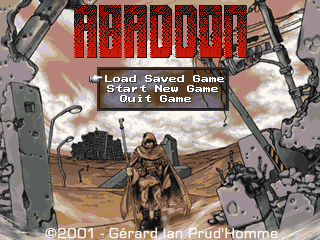

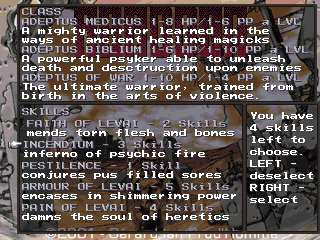
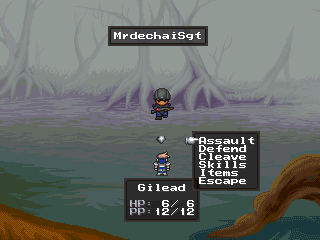
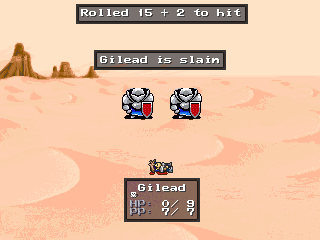
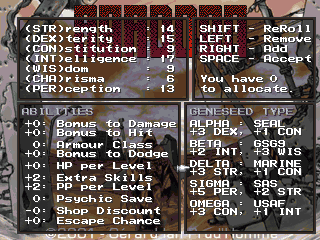



Reviews
There are no reviews yet.